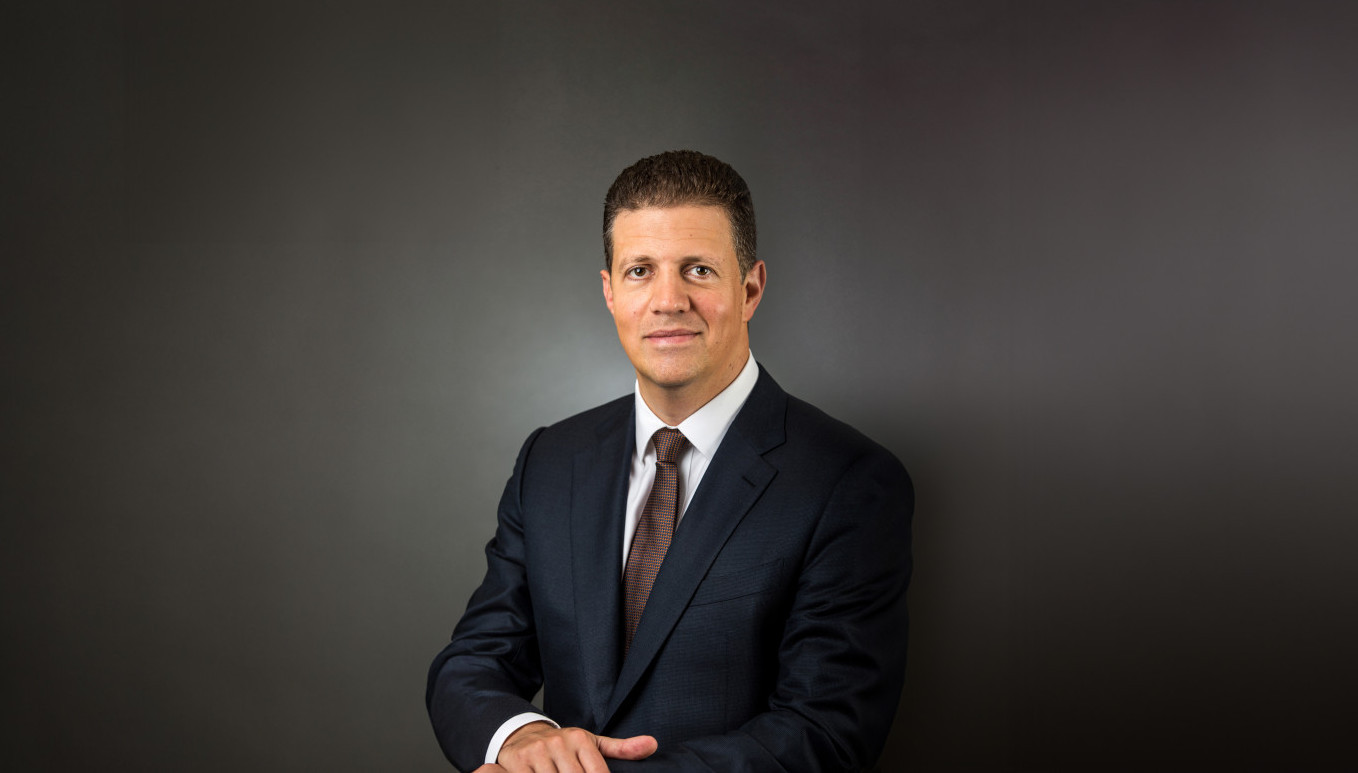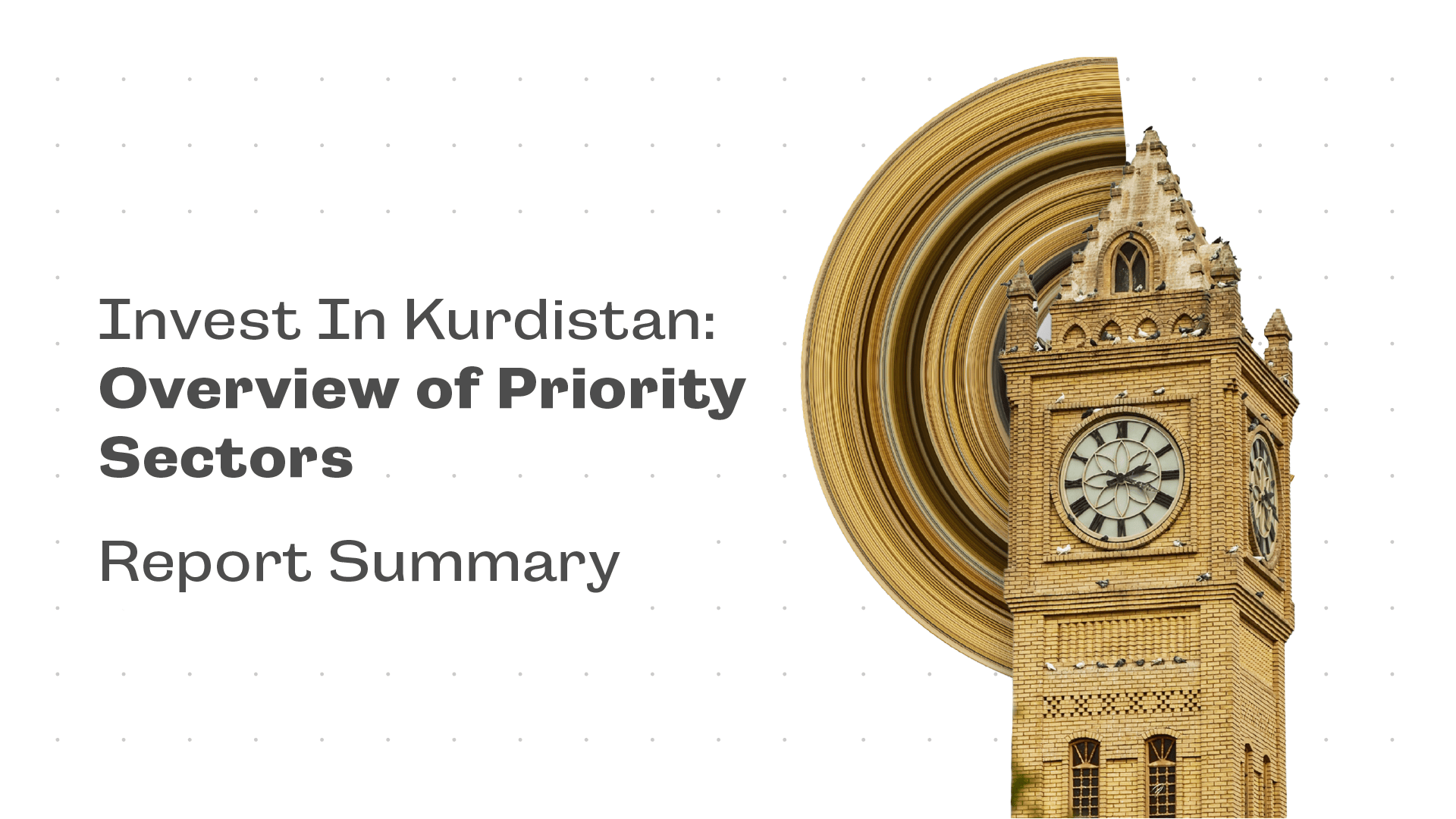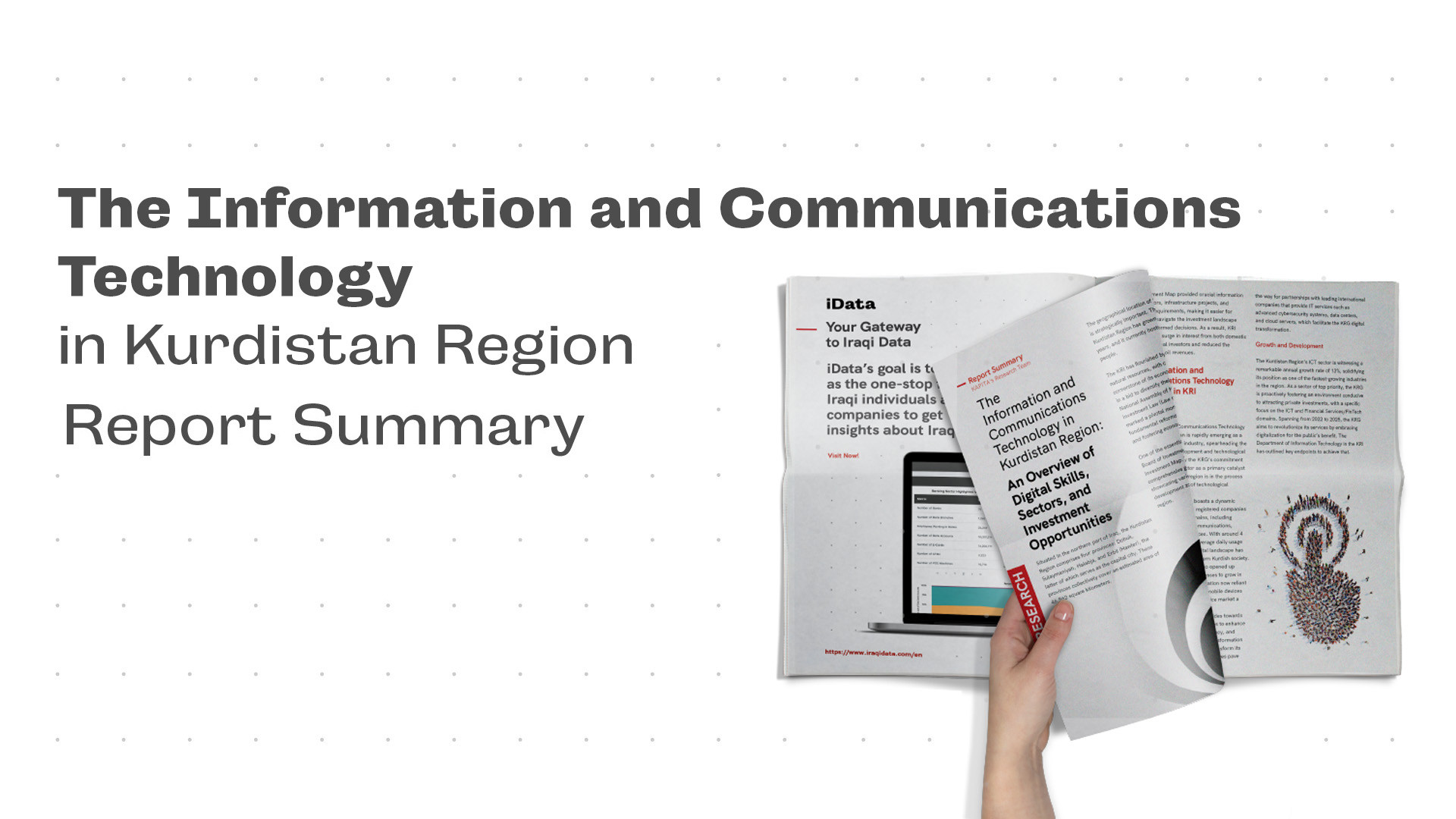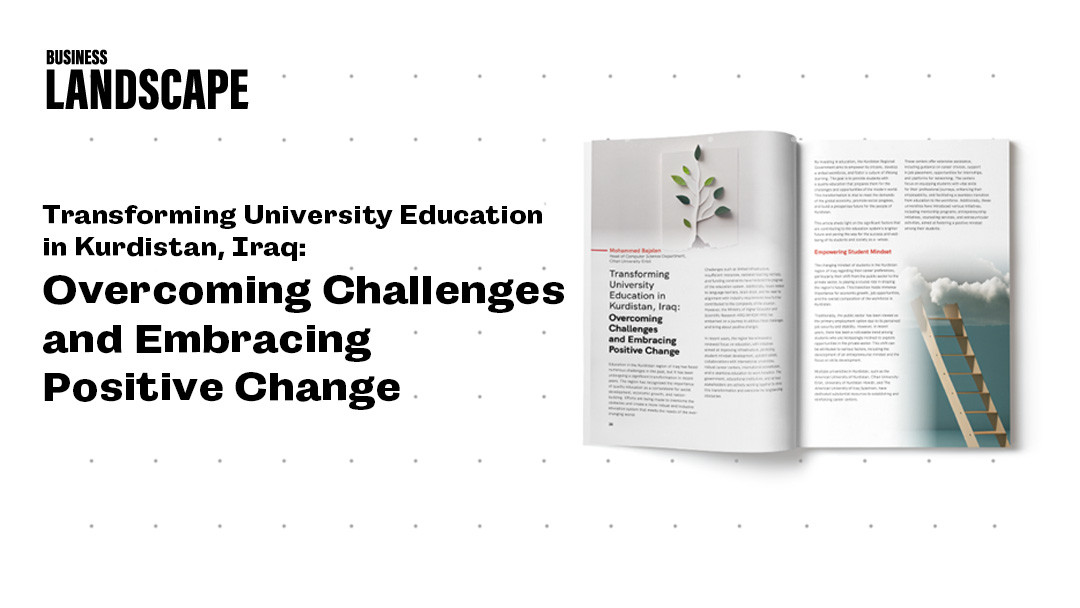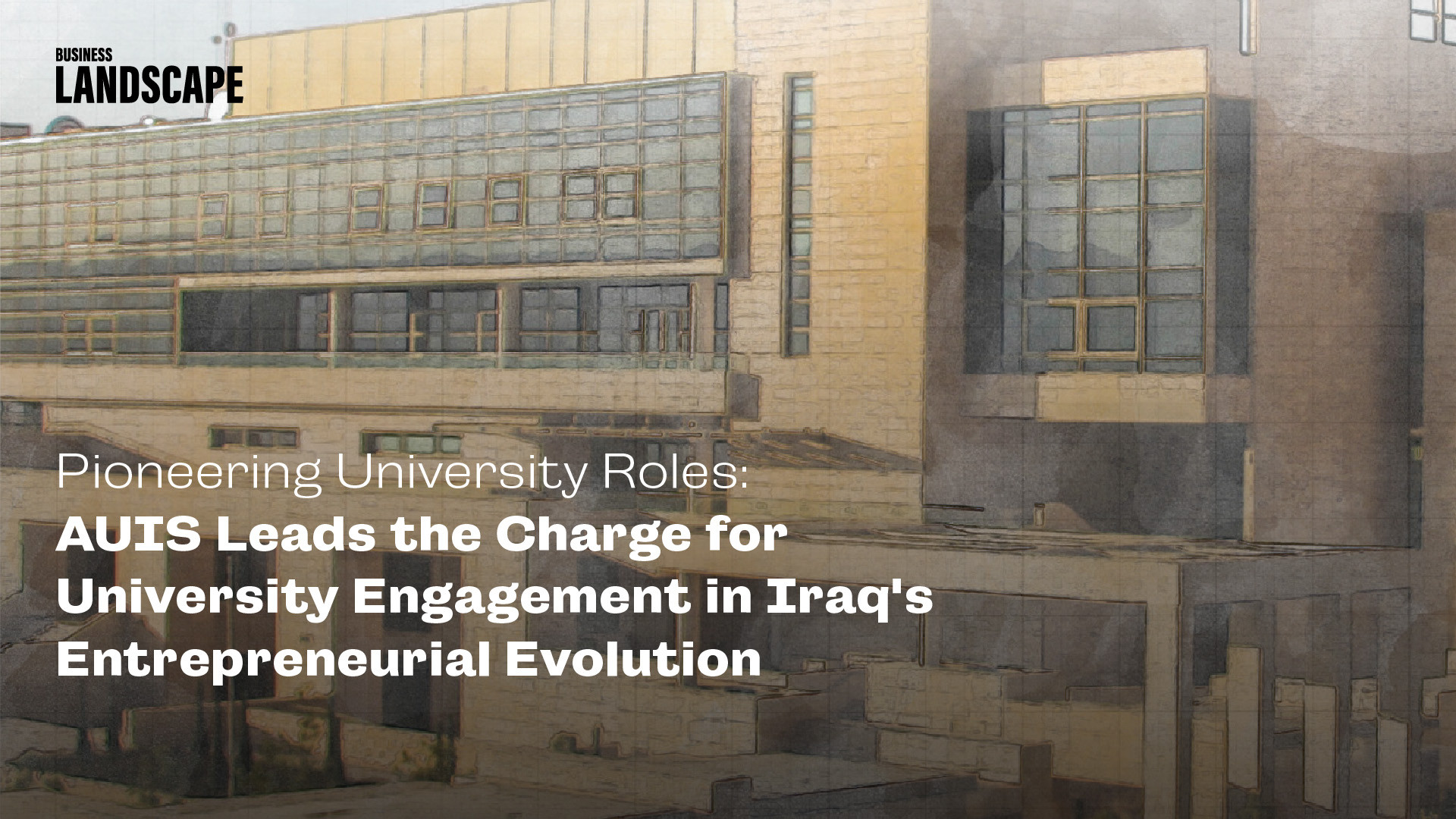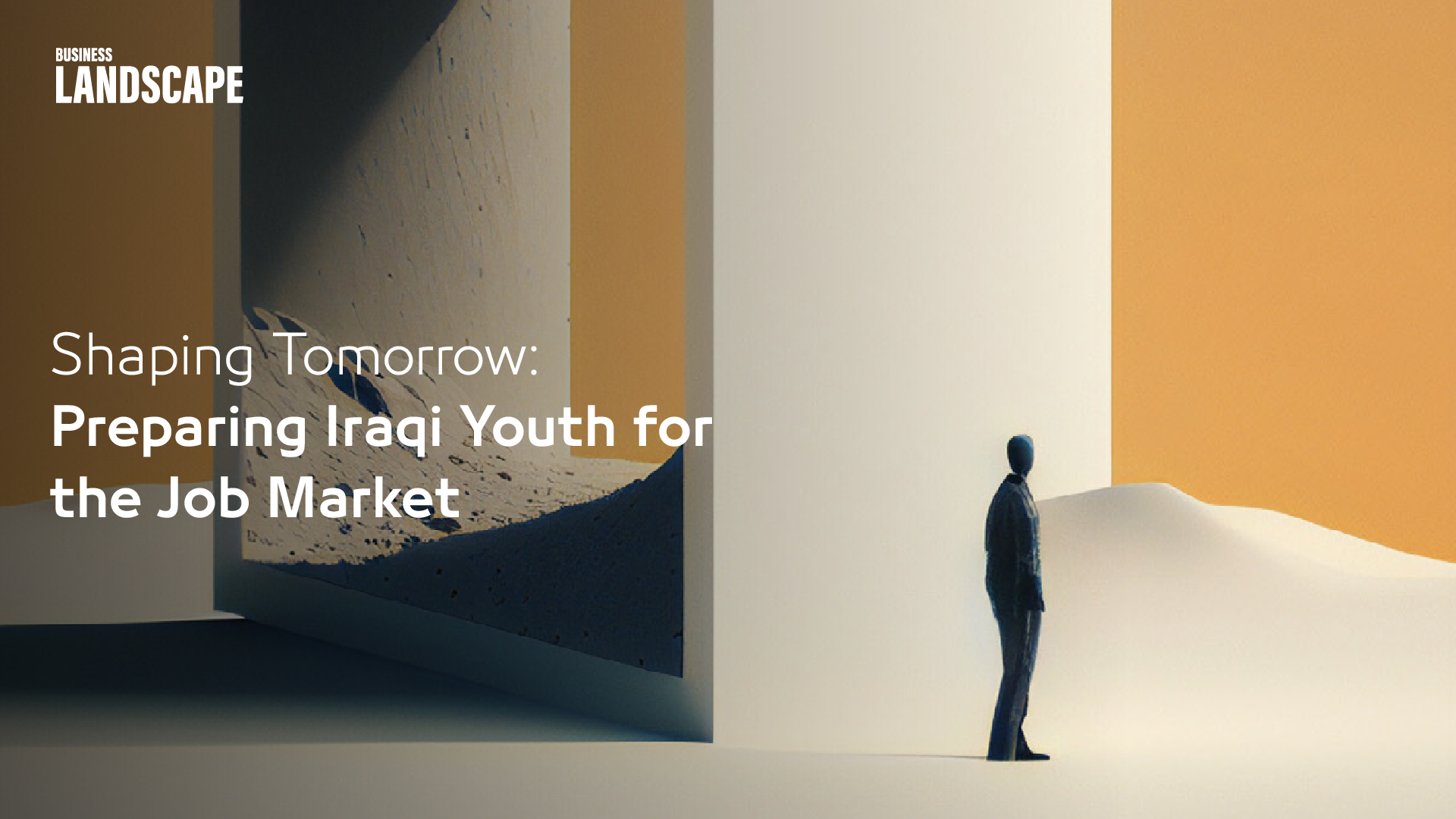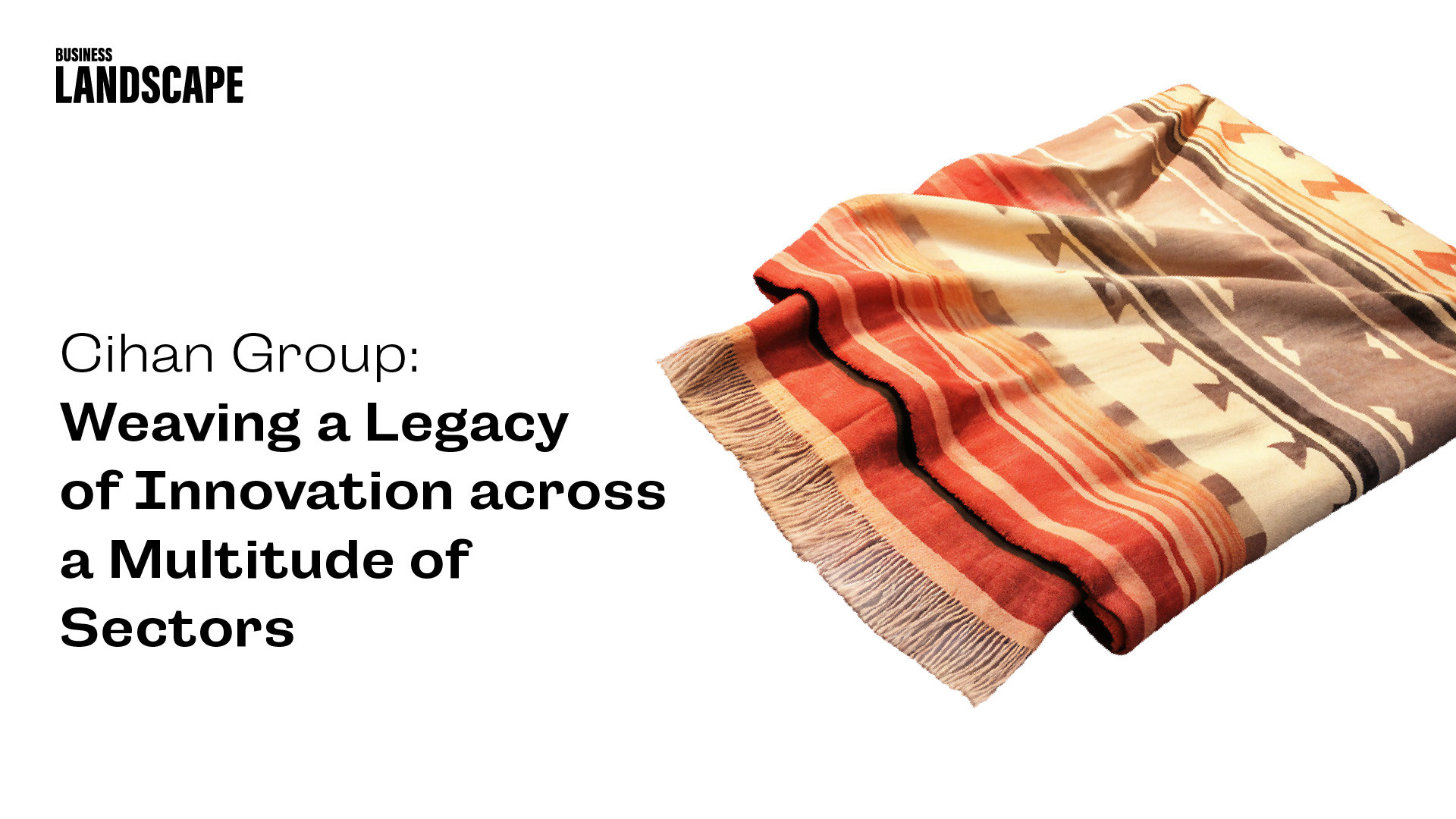Business LANDSCAPE Interview
Majid Jafar
CEO, Crescent Petroleum
Majid Jafar is the CEO of Crescent Petroleum, a prominent energy company with a history spanning over 50 years, headquartered in Sharjah, UAE, with offices in Iraq, the UK, and other international locations. He holds degrees in engineering from Cambridge University in the UK and an MBA from Harvard. He began his career at Shell International, where he worked in upstream and gas and power divisions in the Netherlands and the UK, and later on joined the Crescent Group. Under his leadership, the company launched Dana Gas, its largest affiliate.
Mr. Jafar talked to the Business LANDSCAPE about his views on the oil and gas industry and their latest developments, challenges and opportunities, and future potential. He also discusses the impact of climate change on the hydrocarbon sector, Crescent Petroleum’s commitment to sustainability, and the steps they have taken to reduce its carbon footprint. In addition, Mr. Jafar tells us about their latest projects supporting education and youth employment.
We would love to start with a brief introduction about you and your career.
I was raised in Sharjah in the UAE. Though we are now UAE citizens and have been based in the UAE for over 50 years, my family is originally Iraqi, from Al-Kadhimiya. My grandfather, Dr. Dhia Jafar, held various positions in the Iraqi government during the last decade of the monarchy from the late 1940s to the late 1950s, serving as Minister of Works and Transport, Minister of Economy, Minister of Finance, Minister of Development, and the Secretary General of the Iraqi Development Board.
As for my own career, I studied engineering at Cambridge University in the UK. Then I worked for a few years for Shell International, first in the Netherlands, then the UK, in upstream and then gas and power. Later I received my MBA from Harvard and returned to the UAE in 2004 to join our family business, the Crescent Group. Afterward, we launched Dana Gas, our biggest affiliate. So I have always been working in the energy business. It is a fascinating industry that combines capital, enterprise, and risk-taking. It has interesting complexities above the ground, not just below the ground, especially in Iraq and in our region. Our business is over 50 years old and headquartered in Sharjah, and the UAE, with offices throughout Iraq, from north to south, and elsewhere internationally, including the UK.
What are your insights on the current state of Iraq's oil and gas industry? And how has it developed in the last decade?
When we look at the sector in Iraq, it is clear that there have been some great achievements, considering the challenges of the past, but also some significant ongoing challenges that need to be addressed for Iraq to meet its full potential. The official reserves stand at 140 billion barrels of oil, in addition to natural gas. These numbers are probably underestimated as Iraq is still vastly under-explored. If we look back at Iraq's history, there was growth in production until and even throughout the 70s, around three and a half million barrels a day. However, this was followed by decades of wars and sanctions that negatively impacted this sector. Despite the presence of skilled professionals and engineers with ample experience, the Iraqi oil sector faced limitations in terms of international capital and access to advanced technology from the global sector.
The transition from the socialist economy model, where only the state solely operates and manages oil, to the private sector-led investment model was not easy. However, the 2005 Constitution calls for maximum investment using the latest market methods in order to maximize the value for the Iraqi people, who are the owners of these resources. However, that requires a real change in mindset as the contract model has evolved and necessitated multiple bid rounds with gradual improvement and still challenges faced by many companies. Regardless of these challenges, the production capacity has increased to almost 5 million barrels per day, a significant improvement from the previous output of 2 million barrels per day, which can be considered a noteworthy accomplishment.
The question is now how to increase it to six, seven, or even 10 million barrels a day, which, in my opinion, Iraq is capable of producing, with proven reserves that are only second to Saudi Arabia in the region and potential which could in fact exceed it. Iraq’s production could therefore match or even exceed Saudi Arabia’s at some point. However, there are some challenges to this, which are the speed of decision-making, corruption in some aspects of the economy, which can impact the oil sector, and infrastructural needs, in particular water treatment and gas flaring. These problems have been persistent, particularly in using gas to produce electricity for the Iraqi people. It has been more than 20 years since the invasion, and Iraqis still do not have 24-hour electricity. It is good to see that the new government prioritized halting gas flaring and utilizing non-associated gas. At Crescent Petroleum, we are committed to playing our role and meeting that objective.
How did climate change impact the hydrocarbon sector?
Climate change is a global challenge, and its impact has implications for every sector and country. In the Iraqi context, we have some local issues that are aggravating the effects of climate change. The flaring of gas, which amounts to approximately 1.8 billion cubic feet a day of gas, is detrimental to the environment as well as human health. The water challenge is another major and growing concern. Iraq was built on the blessing of the two rivers, but their levels today are lower than ever. This is not only because of climate change but also because of dams that were built upstream in Turkey and Syria.
Those discussions are also very important to improve the water supplies and water management. There are other countries with much less water, but they manage it better in terms of irrigation and other uses. The salinity coming upstream from the Shatt Al Arab is another related problem. There are environmental challenges within the oil sector, and the fastest way to reduce emissions is to replace diesel and other liquid fuels with natural gas for electricity generation and industrial use. Our own gas production in Iraq, by displacing diesel for power generation in this way, already avoids CO2 emissions of 5 million tons annually, which is more than all Tesla cars in the world today. This approach would help Iraq to achieve stable baseload electricity 24 hours and then enable renewables. It is good to see the Iraqi government and the KRG are both seeking to add solar power to complement gas for power. Using liquid fuels for power should be avoided and reserved for petrochemical industries.
Crescent Petroleum is known for its commitment to sustainable development. Can you tell us about the company's work in this domain?
We have been reporting on sustainability for around a decade, specifically focusing on the ESG (Environmental, Social, and Governance) framework globally. While in wealthier countries, the focus has been primarily on the environmental aspect, in a country like Iraq, the social impact and governance parts are equally critical. We have been focusing on all of those throughout our efforts and operations in Iraq. Over the last 15 years as a group, we have invested over $3 billion in Iraq, ranging from the gas sector in the Kurdistan Region, and now expanding into Diyala’s gas sector, and also by building power plants through our affiliate Uruk Group and in central Iraq, through to our affiliate Gulftainer operating the container terminal at Umm Qasr Port in the south. Therefore, our operations span across the country when it comes to energy and infrastructure.
With climate change being a pressing global issue, what steps is Crescent Petroleum taking to reduce its carbon footprint in Iraq?
For several years, we have prioritized efforts to reduce our carbon footprint and intensity. If we look back at the company's history, we started as a 100% oil producer in Sharjah, UAE, and we now focus on natural gas, which constitutes over 80% of our production. We have significantly reduced our emissions and flaring to almost zero, and we have offset the remainder by purchasing UN-certified carbon credits, which enable and support renewable energy in Asia, particularly wind power in China and Mongolia. As a result, we declared net zero carbon neutrality across our operations in October 2021, thus becoming the first company in the Middle East region and one of the first in the world to achieve this feat. We have maintained that and lowered our carbon intensity to less than one-third of the global industry average.
Oil and gas have critical roles in the energy transition; gas can replace coal in Asia and Africa or liquid fuels in the Middle East, and Iraq in particular. This transition is the fastest way to reduce emissions and enable renewables, which are intermittent by nature and need other energy sources to back them up when the sun is not shining, or the wind is not blowing to generate solar and wind power.
As we move towards the electrification of light transport, we see that heavy transport, air transport, and shipping still require oil, as there is currently no feasible alternative. Petrochemicals also play a vital role in our daily lives, and even during the COVID-19 pandemic, we relied on petroleum products for sanitizers, masks, syringes, and vaccines, all of which had glycol as a stabilizing agent. Furthermore, our computers and smartphones and so much else are made of petroleum products, which is an under-appreciated aspect of petroleum. Therefore, the need for oil will remain, but it must be produced and used more cleanly at a lower carbon intensity.
How does Crescent Petroleum balance the need for economic growth with environmental sustainability in its business operations?
Our role in the gas sector is to combine gas-enabled, affordable, and cleaner electricity with huge benefits for both the environment and the economy. Through our gas production in Iraq, we have already avoided over 50 million tons of CO2 emissions while also contributing to GDP growth and creating economic value of over $25 billion. This was verified by reports by PWC, the global consulting and accounting firm. Our gas project received $250 million in financial support from the US Development Finance Corporation due to its perceived benefits for both the economy and the environment.
Can you tell us more about the company's venture capital division?
As the head of the energy side of the Crescent Group, I lead Crescent Petroleum and oversight of its affiliate Dana Gas. My brother Bader runs Crescent Enterprises, which is the non-energy side with different investment verticals such as Crescent Creates, which supports startups, and Crescent Ventures, our corporate VC arm. It does about 30% of its investments through funds and about 70% through direct investments; some of that is in our region, including Iraq, others in the US, India, or other parts of the world. It is focused on different types of technology; traditional tech, FinTech, BioTech, MedTech, and DeepTech. We also have Crescent Invests, which is the private equity side in terms of the maturity of the business, often through funds or co-investment. In addition to these entities, Crescent Operates also includes a port management company, Gulftainer, which is the largest private container terminal operator in the world and is active in Iraq as well as the rest of the Middle East and has also expanded into two ports in the United States.
As a leading player in the energy industry, how does Crescent Petroleum envision Iraq’s future in terms of energy production and consumption?
The majority of the oil that Iraq produces is, of course, exported. The country’s oil production needs to increase beyond 5 million; hopefully, it can double to 10 million and beyond. Despite the world transitioning to cleaner energy sources, Iraq's oil and gas will remain competitive for a long time as they are among the cheapest and lowest carbon intensity. However, we must avoid the mentality of leaving Iraq's oil and gas resources in the ground for future generations, as their value may decline in the future. We should learn from countries like the UAE, where they have maximized production and used the profits to diversify their economy and ensure its resilience for the future.
Abu Dhabi Investment Authority is also a great example, as it manages close to a trillion dollars in assets, along with other big funds. This diversified economy allows them to remain resilient even when the price of oil drops to $20 per barrel. As far as domestic consumption, the problem for Iraq is not that it consumes more than it produces but that it has not utilized its resources efficiently, especially its gas. Iraq is currently flaring 1.8 billion cubic feet of gas in the south and has a lot of undeveloped gas fields.
We have started playing our role in developing those in places like Diyala. However, there are investments needed to capture the gas that is lost to flaring to enable electricity generation, transmission, as well as distribution. All these elements of the energy value chain need the right projects to be implemented without further delay. It is unfortunate that Iraq, with such energy resources, does not have 24/7 electricity itself and is importing electricity and gas while flaring an even larger amount. The new government has prioritized addressing these issues, and we hope to see success soon.
Crescent Petroleum has been actively involved in corporate social responsibility initiatives. Can you tell us about some of the notable projects the company has undertaken in this regard, particularly in Iraq?
Our top priority is always meeting the local needs in the areas where we operate and then extending our support to the wider country as well. When we first began working, local communities had valid concerns about our plans to extract gas from below their land and send it to cities for electricity without addressing their own electricity needs. To address this, we made sure that the villages in the areas we operate had total electricity before we began operations. We also prioritize meeting local needs in terms of water, education, and healthcare, particularly during the COVID-19 pandemic, where we distributed relief packages in the form of food, masks, sanitizer, and educational materials.
This approach has always been the core of our operations. We have also partnered with organizations at the regional and national level, such as the Ammar Foundation, to cater to the needs of Iraqi IDPs camps, support local hospitals, empower the youth, and address unemployment by upskilling youth for the job market.
You have been a part of many initiatives that support education and youth employment. Can you tell us more about that?
In terms of education and youth employment, we have established partnerships with several organizations. One of them is Education for Employment, which focuses on improving employability skills for young people. Another initiative that we have partnered with is Edraak, an initiative of the Queen Rania Foundation, and the British Council to design a unique program to improve employability skills for young people such as in English language, IT skills, and soft skills, such as teamwork and office etiquette, which are crucial for employability but not always taught in public education systems in Iraq or the wider Middle East region.
Through our partnerships with these organizations, we made many online courses that have been downloaded more than 500,000 times, with over 100,000 downloads from young Iraqis. We believe that unemployment is the biggest challenge facing our whole region, with the Middle East and North Africa having the highest youth unemployment rate in the world, at about 30%. This rate has, unfortunately, grown over the last decade. And female youth unemployment is even higher, at about 40%. However, what we also have is a high birth rate, something other regions of the world, like Russia, Europe, China, and Japan, envy us for because of their declining populations. Finding productive employment for these young people is a significant challenge. We believe that private sector-led investment, growth, and employment is the key to sustainable and productive employment. The government cannot continue to be relied upon to hire everyone, as has been seen in other economies in the region, such as Saudi Arabia and Egypt.
What do you see as the biggest challenges and opportunities facing Crescent Petroleum in Iraq in the coming years?
The challenges facing us include the speed of decision-making, although we have seen considerable improvement in this area. Security remains a challenge, but the outlook is becoming more positive. There is also a need for infrastructure, including education, health, and physical infrastructure, such as water treatment, which is critical for the oil and gas sector as well as for everyone in the country. Despite these challenges, we are optimistic about the opportunities in Iraq. The country has a growing market with motivated young people and investment needs in every sector of the economy. At Crescent Petroleum, we focus on the oil and gas sectors, particularly natural gas. The reserves and potential are huge. The opportunity to do good while doing well is also huge, as natural gas enables affordable electricity, industrial development, and job creation and helps tackle climate change, all at the same time. Therefore, we are hopeful and optimistic. We have been active in Iraq for more than 15 years, and we are committed to the country through our contracts for decades to come.
